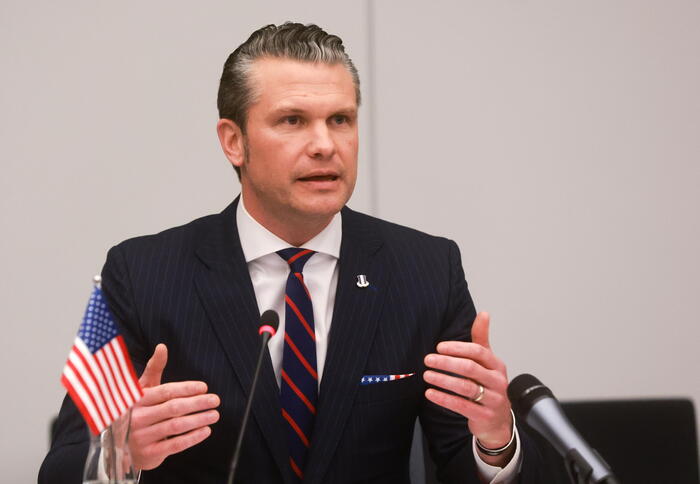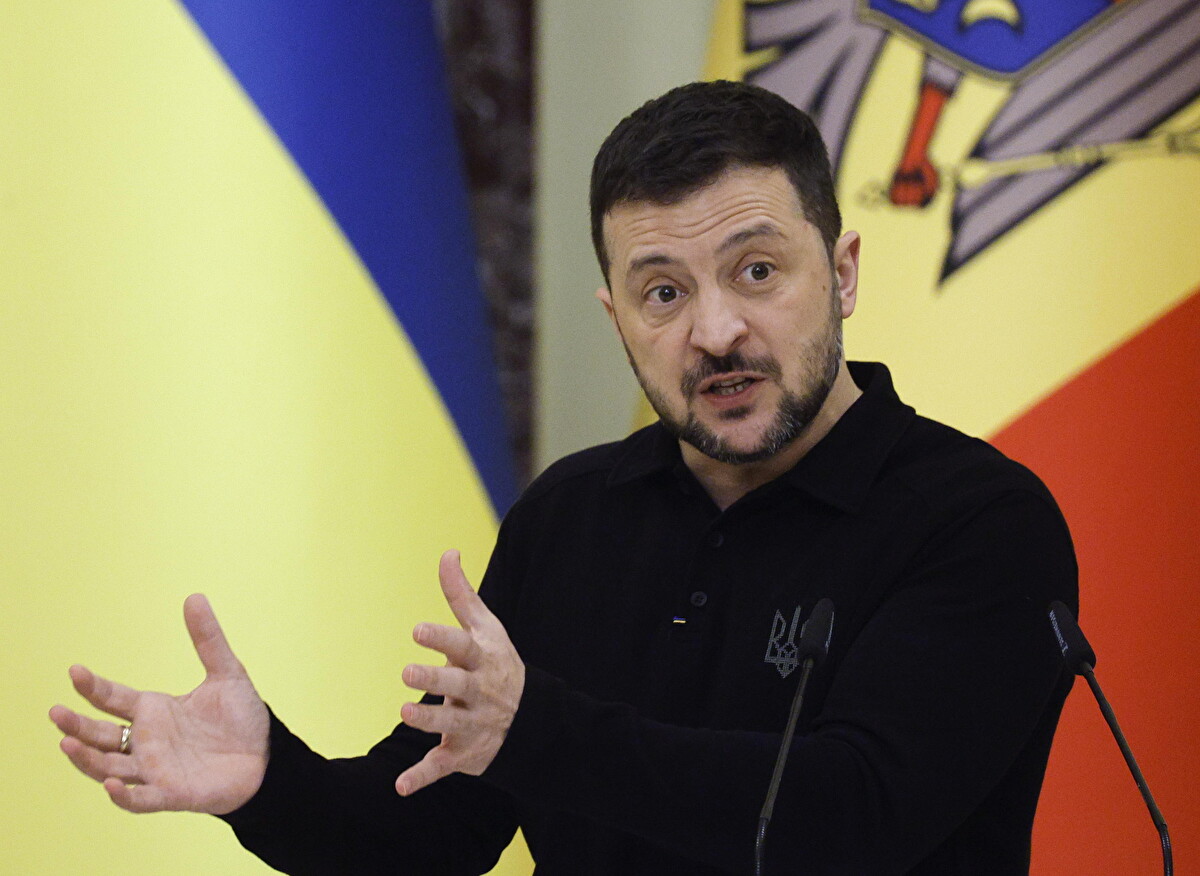Keeping Ukraine out of NATO, conceding some of its territory to Russia, and shifting the responsibility of Kyiv’s defense onto Europe while Washington turns its attention to the China threat.
Pentagon chief Pete Hegseth left no room for ambiguity—or sentimentality—during his remarks at the Ukraine Defense Contact Group, a coalition of 54 nations established in 2022 to coordinate military aid to Kyiv.
Hegseth was blunt: the war must end soon because “stark strategic realities prevent the United States of America from being primarily focused on the security of Europe”. That means securing Ukraine post-war will be Europe’s responsibility, without direct American involvement.
“The United States does not believe that NATO membership for Ukraine is a realistic outcome of a negotiated settlement,” Hegseth stated in Brussels. “A durable peace for Ukraine must include robust security guarantees to ensure that the war will not begin again (…) backed by capable European and non-European troops (…). If these troops are deployed as peacekeepers to Ukraine at any point, they should be deployed as part of a non-NATO mission. And they should not covered under Article 5”, the Pentagon chief said.
His remarks directly contradicted Ukrainian President Volodymyr Zelensky’s recent warnings that Europe alone cannot safeguard his country without firm U.S. leadership.
Hegseth also tempered Ukrainian hopes of reclaiming all lost territories, dismissing the idea of retaking Crimea and the Donbas as “unrealistic.” Chasing this illusionary goal will only prolong the war and cause more suffering”, he warned.
The Pentagon chief reinforced President Trump’s demand that allies increase their defense spending to 5% of GDP, calling the current 2% threshold inadequate. “The United States remains committed to the NATO alliance and to the defense partnership with Europe. Full stop. But the United States will no longer tolerate an imbalanced relationship which encourages dependency.”
While the rhetoric was sharp, it did not catch allies off guard. They had anticipated this shift ever since Trump’s reelection last November. NATO had already devised an independent framework to coordinate military aid to Kyiv, preempting Washington’s pivot.
NATO Secretary-General Mark Rutte underscored the need for a fairer burden-sharing model, urging all nations to do more to influence the war’s outcome.
Referring to Hegseth’s remarks, Zelensky stated that “(wihout NATO) Ukraine will need an army as vast as Russia’s. And that requires weapons and funding (…) which we will continue to demand from the United States.”

As Hegseth laid out the administration’s new priorities, Trump’s Treasury Secretary, Scott Bessent, arrived in Kyiv to negotiate a strategic pact—Ukraine’s critical rare-earth minerals in exchange for U.S. support.
Ukraine holds significant reserves of lanthanum, cerium, neodymium, erbium, and yttrium—essential for everything from electric vehicle batteries to nuclear energy. The country’s deposits are concentrated in the southeastern Zaporizhzhia region, one of four areas Moscow now claims as Russian territory, though not fully under its control. Additional reserves are located in Kirovohrad, in the south of the war-torn nation.
Meanwhile, this week is pivotal for Ukraine’s diplomatic efforts. Following the first Ukraine Defense Contact Group meeting under Trump’s presidency, Zelensky is set to meet U.S. Vice President JD Vance at the Munich Security Conference (Feb. 14-16), where Trump’s Ukraine envoy, Keith Kellogg, will also be present. But speculation is also mounting that Trump himself may directly engage with Zelensky later this week.
The White House remains in active dialogue with Moscow, signaling an attempt at gradual normalization. A sign of it came Tuesday when Trump’s Middle East envoy, Steve Witkoff, became the first senior U.S. official to visit Russia since the war began. He left Moscow aboard his private jet with Marc Fogel, a detained American teacher released hours earlier in what National Security Advisor Michael Waltz called a Kremlin “gesture of goodwill.”
The New York Times later revealed the price of that gesture—Russia secured the release of Aleksandr Vinnik, a crypto-exchange co-founder convicted of laundering $4 billion. Last May, the 45-year-old pleaded guilty to conspiracy to commit money laundering in a California federal court, facing up to 20 years in prison.
According to reports, Trump has tasked Witkoff with gauging Putin’s inner circle to explore potential diplomatic offramps to the Ukraine war. Fox News, the de facto media arm of Trump’s White House, reported a three-hour meeting between Witkoff and Putin.
The Kremlin, meanwhile, flatly rejected Zelensky’s latest proposal—offering to return Russia’s occupied Kursk region in exchange for Ukrainian territory. Putin’s spokesman, Dmitry Peskov, reiterated that Moscow will not end the war until Kyiv renounces NATO ambitions and fully withdraws from the eastern Donetsk and Luhansk regions, as well as the southern territories of Zaporizhzhia and Kherson.
For Ukraine and NATO, these demands amount to unconditional surrender. “We want the war to end, but not at the cost of capitulation,” a senior NATO official stated. “Ukraine must remain an independent nation.”












